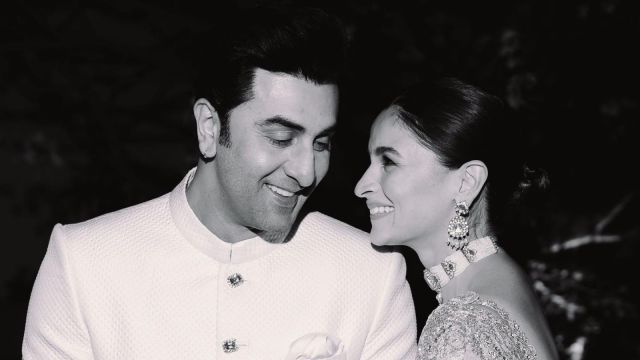“She used to speak in a very loud tone and I think because of my father’s tone growing up, it always kind of rattled me. So she really made efforts to change and that’s not easy.”

“She changed more for me than I changed for her,” Ranbir Kapoor said about his relationship with Alia Bhatt. (Photo: Alia Bhatt/ Instagram)
Bollywood power couple Ranbir Kapoor and Alia Bhatt have once again captured public attention, this time due to Kapoor’s recent statement about their relationship dynamics on Nikhil Kamath’s podcast ‘WTF is with Nikhil Kamath’.
He said, “Alia was somebody I met over the years and thought this person is special. I have immense respect for her as an actor, artist, person, daughter, and sister. She really makes me smile. I love going on a holiday with her but I also love to be home with her.”
Kapoor went on to mention all of Bhatt’s traits that he admires and loves. “She’s an ambitious one and she’s an overachiever. Work is something she’s extremely passionate about. Extremely passionate, extremely intelligent. So yeah, she has spaces where she’s fragmented so you have to get her attention. But I think over the years after me cribbing to her about it, I have her attention. She listens when I’m talking. She has really made some effort and I must acknowledge that everything I complain about, she complains about, she has made more effort.”
He also appreciated how she made the effort to change herself and show compassion toward his childhood trauma. “She changed more for me than I changed for her. I’m acknowledging it but I should do something about it. I should change a bit… She used to speak in a very loud tone and I think because of my father’s tone growing up, it always kind of rattled me. So she really made efforts to change and that’s not easy.”
Relationships often involve a degree of mutual adaptation, but when one partner appears to be making significantly more changes than the other, it raises concerns about equity and individual identity.
Rhea Joseph, Consultant Family Therapist and Relationship Counselor at Cadabams Hospital, says, “The dynamics of a romantic relationship are rarely static. However, when one partner experiences significant personal growth or transformation while the other remains relatively stagnant, it can create a complex emotional landscape with potential psychological repercussions.”

Talk openly about your feelings, concerns, and aspirations. Encourage your partner to do the same. (Source: Freepik)
Potential psychological impacts when one partner changes significantly more than the other in a relationship
When one partner undergoes significant changes, whether it’s a shift in career, values, interests, or personal aspirations, Joseph says, the other partner may grapple with various psychological responses.
Insecurity and Inadequacy: The partner experiencing less change might feel a sense of insecurity or inadequacy, comparing themselves to their evolving counterpart and questioning their own value within the relationship.
Resentment and Jealousy: Resentment can arise if one partner feels left behind or overshadowed by the other’s growth. Jealousy can also emerge, especially if the changes involve new social circles or activities that exclude the other partner.
Fear of Loss: The fear of losing the connection and intimacy that once defined the relationship can become a significant source of anxiety and distress.
Identity Crisis: The unchanging partner may question their own identity and purpose within the relationship, feeling lost or uncertain about their role as the dynamics shift.

Signs that indicate whether these changes are healthy adjustments or problematic sacrifices
Joseph states, “In a healthy relationship, both partners support each other’s growth and encourage individual pursuits. Even when one partner is experiencing more change, the other adapts and adjusts to maintain a sense of balance. There’s open communication, mutual respect, and a willingness to compromise.”
When change in one partner results in the other feeling neglected, resentful, or forced to sacrifice their own needs and desires, it becomes problematic, she mentions. This can create a power imbalance and lead to resentment and unhappiness.
Advice for couples navigating change

To ensure that changes within a relationship are mutual and beneficial, Joseph suggests considering the following:
Open and Honest Communication: Talk openly about your feelings, concerns, and aspirations. Encourage your partner to do the same.
Support and Encouragement: Celebrate each other’s successes and offer support during challenges.
Maintain Individuality: Encourage each other to pursue individual interests and passions.





